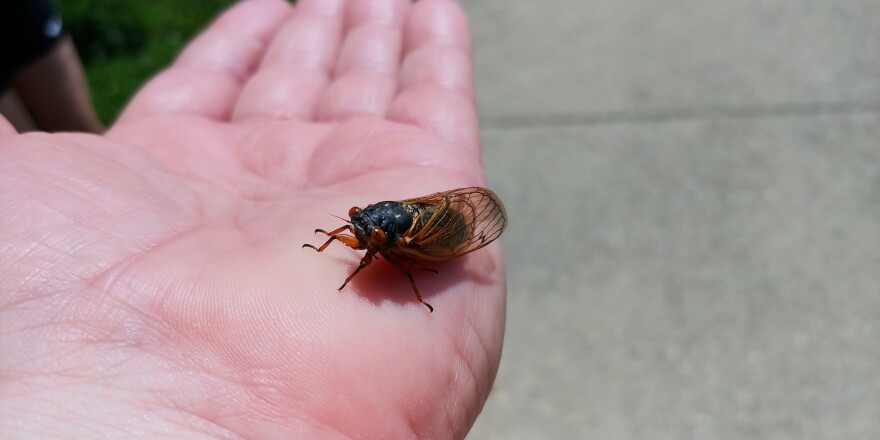The Cincinnati area isn't expecting to see a large cicada emergence for another two years, but some have already been documented. Dr. Gene Kritsky says three have been found locally, and they’re either two years early or two years late.
"What is interesting is that it shows how cicadas can get their internal clock off," he says. "Cicadas count the years by monitoring the fluid flow from the roots to the leaves in the spring."
Kritsky says the count can get off if plants start drawing water from the ground during an early thaw, but stop and start again after a cold spell.
RELATED: What's the best way to eat cicadas?
Last year, several dozen from 2021's Brood X were reported, which Kritsky says is not unusual. He's trying to figure out if two year stragglers, or early arrivals are peculiar. "In the past, no one's ever looked for cicadas when they're not supposed to be here."
The dean of behavioral and natural science at Mount Saint Joseph is hoping people use the Cicada Safari app and keep an eye out for off-schedule periodic cicadas in the coming weeks.
"The cicada emergence could start in this area here usually around mid-May, and that's when we saw the first one. Then we saw another one last week," he says. "And now as we're going into June, that would be the peak of the potentials that would come out."
Kritsky says next year, Brood XIII, a 17-year cicada, and Brood XXII, a 13-year cicada, will emerge in several states, but shouldn't be seen locally. He says the last time those two emergences coincided, Thomas Jefferson was president.
LISTEN: What to do if your trees are showing damage from cicadas
“Brood XIV will emerge in 2025, and it's going to be very heavy on the east side of Cincinnati, Milford, Batavia, and that area, and then along the counties just east of there."
He says the local time-displaced cicadas will likely get eaten by predators quickly.



